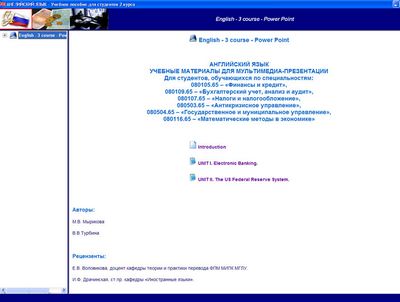
TYPES OF PROPRIETORSHIP
Text
A business may be privately owned in three different forms. These
forms are the sole proprietorship, the partnership and the corporation. The
sole proprietorship is the most common in many western countries. For
example, more than 80 per cent of all businesses in the United States are sole
proprietorships.
But it is evident that sole proprietorships do not do the greatest volume
of business. They account for only 16 percent of all business receipts, for
example, in America. What kind of business is likely to be a sole
proprietorship? First of all, service industries such as Laundromats, beauty
shops, different repair shops, restaurants.
Active Vocabulary
to own
sole
proprietorship
partnership
corporation
volume
receipt
service industry
to account for
Laundromat
repair shop
дело
владеть
индивидуальная предпринимательская деятельность,
частное предприятие
партнерство
корпорация
объем, количество
денежные поступления
сфера обслуживания
составлять, насчитывать
автоматическая прачечная самообслуживания
мастерская
Comprehension Questions
2. What forms do most European countries have?
3. What forms did the businesses in the USSR have?
4. Name some businesses that are likely to be sole proprietorships. Why do
you think so?
5. Name some businesses that are not likely to be sole proprietorship? Why
do you think so?
3
Ex.1. Choose the necessary word and put it in the sentence:
2. The … industries don’t produce material goods.
3. More than 80 per cent of all business … are not
from sole proprietorships.
4. Less than 20 per cent of European businesses are
partnerships or … .
5. Sole proprietorships … only a small part of all
business receipts.
6. Is this bank owned publicly or … ?
7. There are three … of business ownership.
Dialogue
Jim: Hi, Alice. How are you getting on?
Alice: Fine, as usual, thanks, Jim. What about you?
Jim: I’m O.K. It’s nice to see you.
a) receipts
b) businesses
c) service
d) privately
e) account for
f) corporations
g) forms
today.
Jim: Sure.
Alice: Can you give me a piece of advice?
Jim: Well, I’ll try if I can.
Alice: You know I’ve been always good at cooking. It interests me. I am
thinking of starting my own business – cafй.
Jim: It might be a good idea.
Alice: I guess I must learn about the responsibilities of going into business.
Jim: Are you going into this business by yourself?
Alice: Exactly. I’d like to have a cafe with my name on it where I make the
decisions and where I control the profits.
Jim: You seem to be resolute so I’ll try to help you. If you go into business
alone, it is called sole proprietorship. In such case you needn’t consult
a lawyer to form the business. You can start or you can stop your
business whenever you like.
Alice: It sounds encouraging. What else can you tell me?
Jim: There is no need to consult partners or a Board of directors. So you can
put your policies into effect quickly. You decide on your vacation,
hours, salary, hiring and firing.
4
Jim: Wait a moment. I believe I have to tell you about the risk involved.
Alice: What do you mean?
Jim: First of all, the most important risk is that you have unlimited liability.
It means that you are responsible for all your business debts.
Alice: So if the business fails, I have to declare personal bankruptcy, don’t I?
Jim: That’s what I mean. You can lose your personal assets.
Alice: Well, it’s rather disappointing. What other things should I know?
Jim: You won’t get tax benefits which partnerships or corporations can get.
Alice: I know about it. By the way do you know of a good accountant to do
my taxes?
Jim: Of course. You’ll also have to hire a good book-keeper if you can’t do
your books yourself.
Alice: I can’t say anything definite about that. I have to think it over. What
else,

